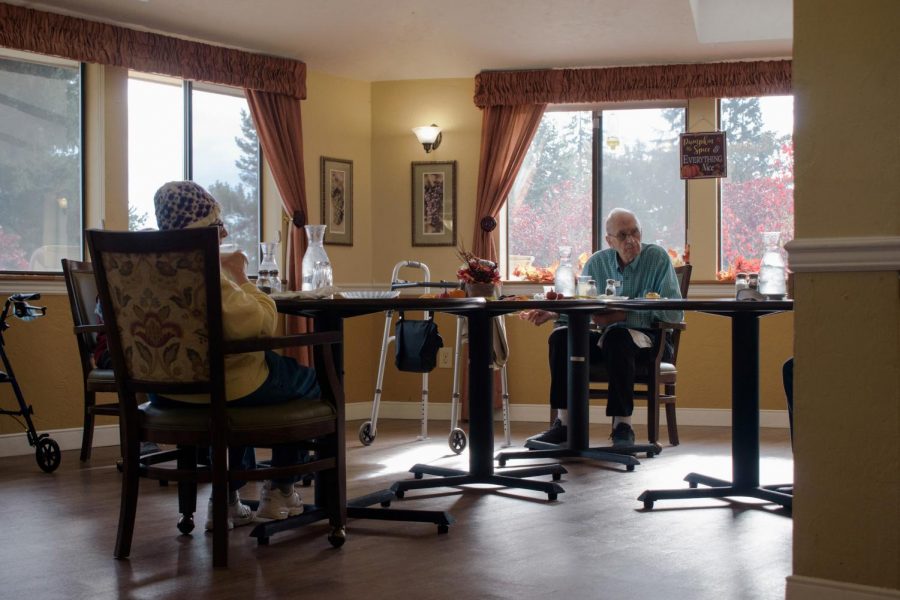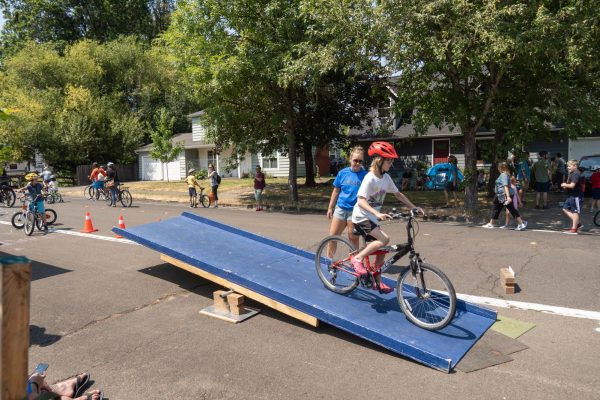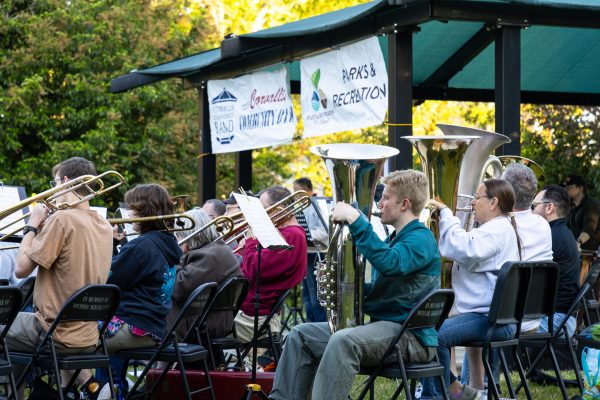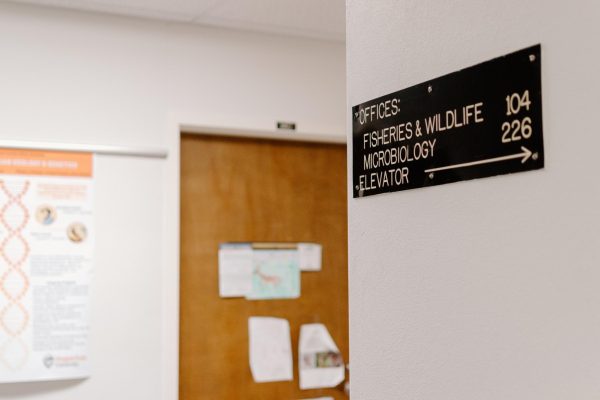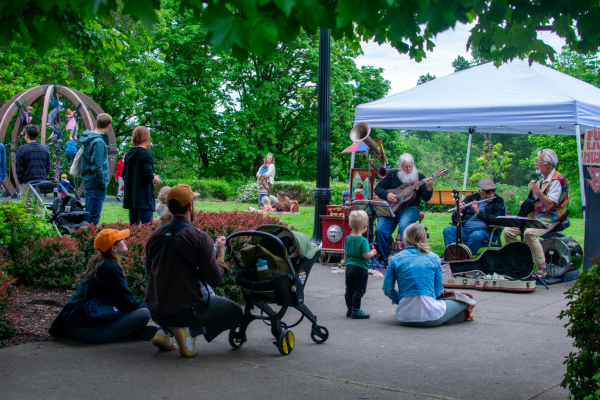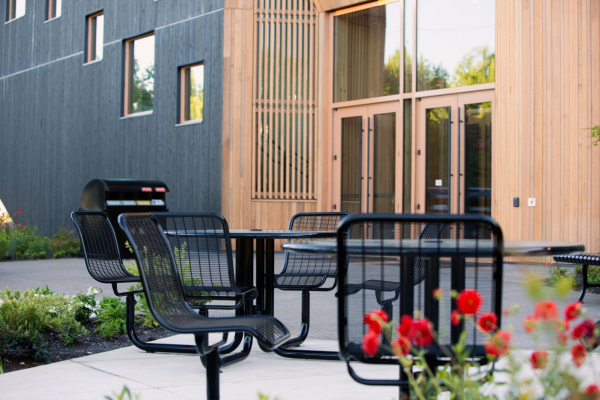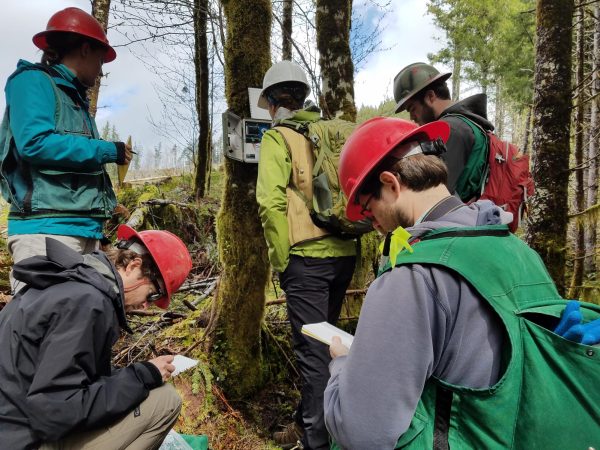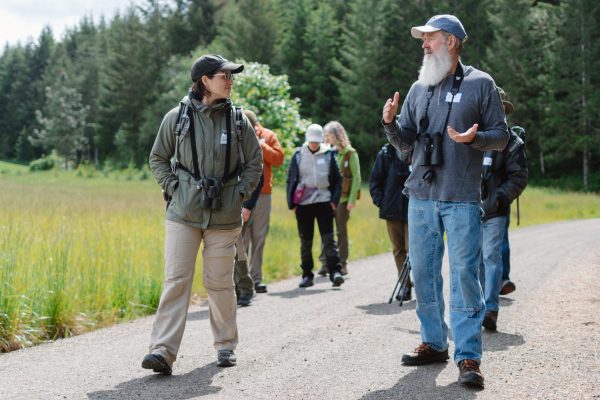Long-term care facilities work to keep residents connected while following COVID-19 guidelines
November 13, 2020
Retirement homes and other long-term care facilities in Corvallis, Ore. have implemented guidelines to limit the spread of COVID-19 and keep residents and staff safe, while designing inventive ways for residents to continue interacting with each other and their loved ones.
There are 11 long-term care facilities in the county which offer a range of accommodations, from independent, assisted-living, nursing care, or memory care, all of which are still open.
“Facilities have been issued a substantial amount of COVID-specific infection control guidance and recommendations by the CDC and the Oregon Health Authority,” said Charlie Fautin, the deputy director for public health in Benton County. “All have made substantial operational changes to comply with guidance. The requirements and operational changes vary depending upon the specific type of facility and populations each one serves.”
The Regent, a Holiday Retirement Community in Corvallis, is just one of the long-term care facilities providing services to senior residents. Vida Pedersen, resident experience coordinator, said The Regent is an independent retirement community, which means residents should primarily be able to take care of themselves and essentially do whatever they want.
“We have three meals a day and we provide transportation, light housekeeping, socialization and activities,” Pedersen said. “We used to have more activities, but right now we try to do four a day, with social distancing and masks and we’re limited on how many people [are allowed].”
The Regent is not at full capacity, Pedersen noted. The facility offers 85 rooms but only 72 residents currently live there. They have had zero cases of COVID-19 in their community.
In regards to how COVID-19 has impacted their services, Pedersen said it’s definitely changed a lot.
Initially The Regent could still provide three meals a day, Pedersen said, but those meals had to be delivered from room to room as residents were not able to eat in the dining room while practicing social distancing measures. However, residents could still call each other and were given crafts, word puzzles, reading materials and other activities to work on in their rooms.
For a couple of weeks, residents were expected to clean their own rooms and housekeeping was limited to prevent the spread of infection to residents and faculty.
Pedersen said they shut down their bus transportation services, because even though residents live independently, The Regent wanted to discourage them from interacting with other people and risking infection. Additionally, sanitization is a priority and everybody who enters or leaves is screened for COVID-19 by taking their temperature.
“We’re limiting who comes in and out, too,” Pedersen said. “At first it was only caregivers [who] could come in and out because some of the residents, even though they’re independent, they still require someone to do their medication – there’s memory stuff that gets in the way of their safety.”
Now, residents are allowed two guests at a time in their room.
Like The Regent, Prestige Senior Living West Hills has been careful to follow safety guidelines while supporting residents. Prestige Care is an assisted-living community offering an active and supportive community-based living environment, which is designed to provide a range of senior care services while helping residents live as independently as possible.
In a statement from Prestige Care, they noted that COVID-19 has not limited their ability to provide exceptional care and services to their community, but they have made it a priority to ensure the health and safety of their residents, patients and team members.
“While we have discontinued all regularly occurring group activities and large group gatherings at this time, our team continues to come up with innovative ways to ensure our residents are staying safe and engaged while adhering to all safety guidelines,” the statement read. “Some of these new daily activities include hallway bingo, individual crafts and courtyard [and] hallway concerts for residents to enjoy at a safe distance from others.”
Key features of their infection-control protocols include: maintaining heightened cleaning and disinfecting procedures, closely following CDC recommendations on minimizing exposure to respiratory pathogens and diligently adhering to personal protective equipment guidelines and working closely with vendors to ensure they have sufficient supplies.
Prestige Care said they also strongly encourage their residents, patients and staff to practice effective hand hygiene and continue to update and train their team on effective infection-control measures.
For both The Regent and Prestige Care, the most difficult aspect of this pandemic for residents is limiting social interactions with other residents and family members.
“I guess that’s the biggest thing, before all this hit, our biggest purpose was to bring people together and provide community, and now we’ve had to protect them from interacting too much,” Pedersen said. “Some people have to move out with family where they have a little more control. I think that’s the hardest part, feeling like you don’t have much control.”
In their statement, Prestige Care noted they have encouraged families to send flowers or drop off care packages to their loved ones, though they are taking extra precautions and asking those bringing items to meet a staff member at the entrance and to disinfect items as they come in.
Prestige Care also helps facilitate video chats using a number of platforms, including Zoom. Some of their staff have volunteered to use their personal cell phones to help connect families via Facetime, as well.
“It’s difficult because I think for all of us here we want everyone to be safe, but we also want to make sure that everybody has people to interact with – that’s very important, especially as you get older, you get more isolated,” Pedersen noted. “So it’s been a real struggle to strike that balance because the target’s always moving. What’s more important, socialization or isolating so you don’t get sick?”












































































































